Grangemouth: 100 years in the oil industry
- Published
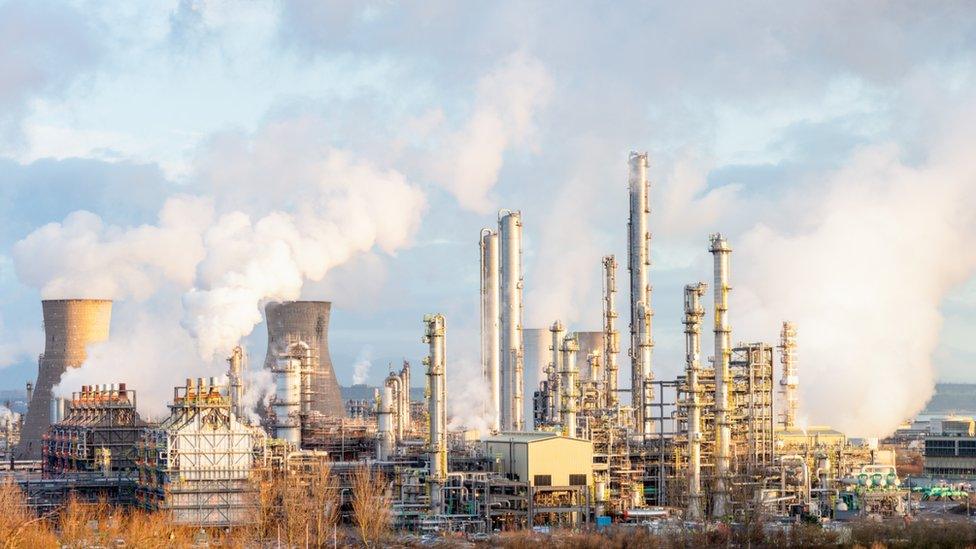
Scotland's only oil refinery could cease operations as soon as 2025 under plans announced by owners Petroineos.
Oil operations at Grangemouth can be traced back more than 100 years to 1919, external, with the refinery established in 1924. It was one of the first crude oil refineries in the UK.
It is currently the primary supplier of aviation fuel for Scotland's main airports, and a major supplier of petrol and diesel ground fuels across the Central Belt.
The 1,700-acre site supplies 70% of the fuel to Scotland's filling stations as well Northern Ireland and the north of England.
It also provides power to the Forties oil pipeline, which brings oil and gas ashore from the North Sea.
BBC Scotland News takes a look back at the site's history.

The early years
The oil operations at Grangemouth can be traced back to 1919, external, when Scottish Oils was formed.
It brought together the businesses including that of Dr James "Paraffin" Young, who opened the world's first oil works near Bathgate, West Lothian, in 1851.
Scottish Oils was acquired by a company which later became BP.

Dr James 'Paraffin' Young opened the world's first oil works
Grangemouth was an attractive location for a refinery because of its transport links and the availability of local skilled labour thanks to the Bathgate works.
By 1924, the BP refinery was in operation.
Until the outbreak of war in 1939, it maintained a throughput of 360,000 tonnes per year. It was forced to close as oil imports dwindled.

Post-war boom
The refinery re-opened in 1946. From the 1950s, operations grew to meet demand for petrochemicals and fuels.
British Petroleum Chemicals was established in 1947 to research petrochemicals.
It decided to locate its site adjacent to the existing refinery.
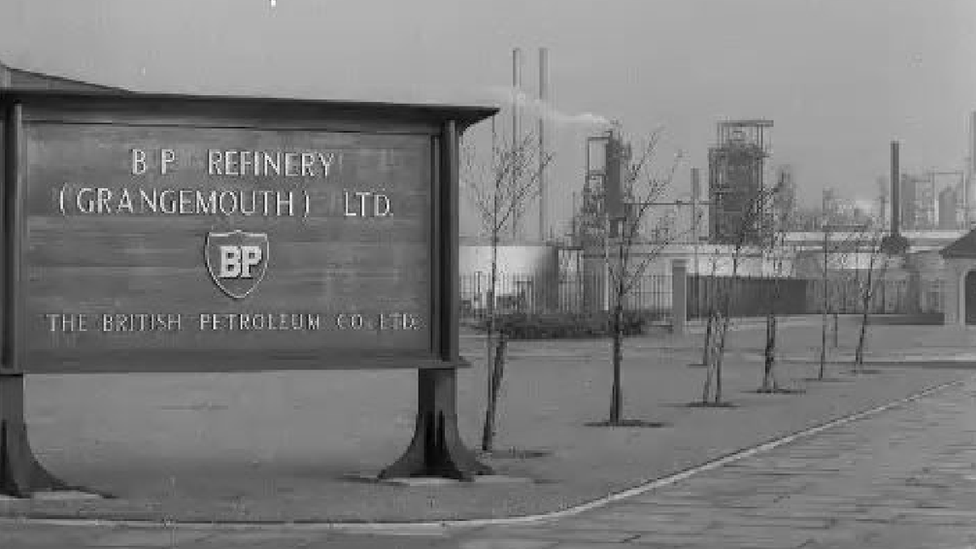
The refinery, pictured here in 1956, re-opened in 1946
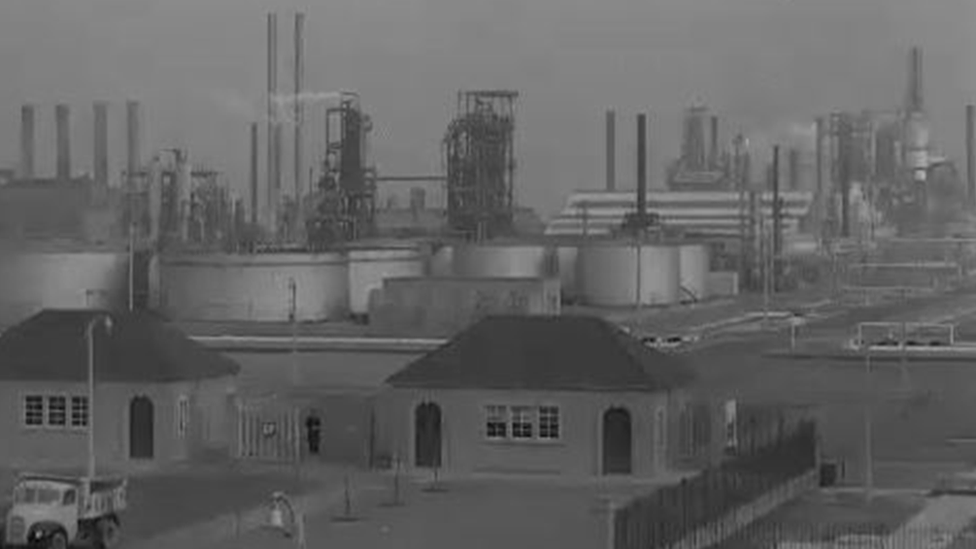

North Sea oil and the Forties Pipeline
The advent of a new source of crude oil feedstock in the shape of North Sea oil brought further business in the 1970s.
The opening of the Forties Pipeline - which carries crude oil from North Sea installations to the nearby Kinneil terminal - in 1975 was another key development.
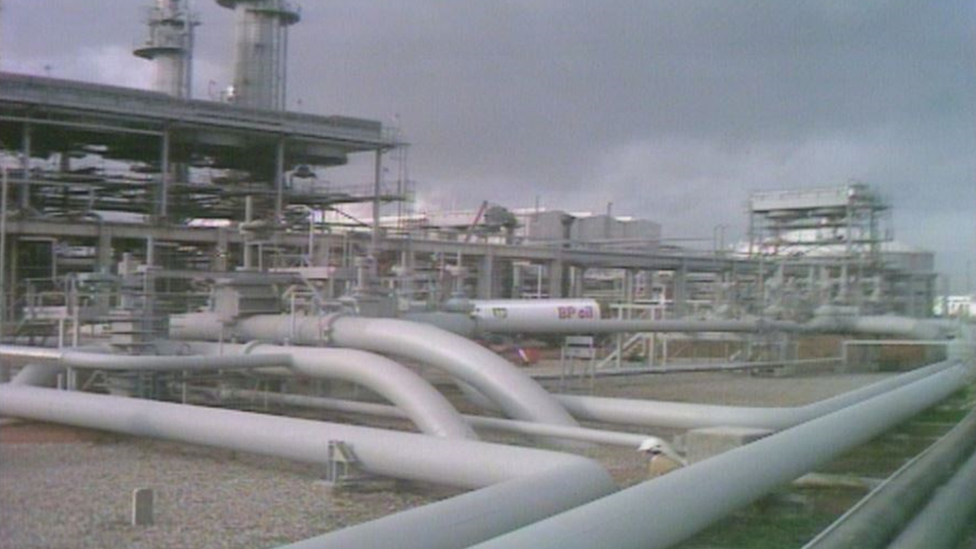
The Forties Pipeline - which carries crude oil from sea to land - opened in 1975
The 235-mile system links 85 North Sea oil and gas assets to the mainland. It comes ashore at Cruden Bay, Aberdeenshire, and onwards to Kinneil.
The pipeline relies on the refinery for steam and electricity to function.
In 2017, Ineos acquired the pipeline.

Jim Ratcliffe takes over
Ineos - a company owned by Britain's richest man Jim Ratcliffe - bought Innovene, owners of the Grangemouth site, in 2005 in a £5bn takeover.
Three years later the 1,700-acre plant was closed when about 1,200 staff went on strike, external over proposed changes including an end to its final salary pension scheme for new workers.
The industrial action led to the Forties pipeline temporarily shutting down.
It was the first time production at Grangemouth, which processes 210,000 barrels of oil a day, has been completely halted and led to worries about short-term fuel shortages.

Jim Ratcliffe is the founder and chairman of Ineos
In 2013, another dispute with the union led to the plant being threatened with closure - which would have resulted in the loss of 800 jobs.
Unite the Union balloted for strike action in a dispute over a disciplinary case against a union organiser and the use of temporary workers.
This was dropped, but Ineos proceeded to shut down the plant and issued an offer of revised terms and conditions - which included ending the final salary pension scheme and cutting shift allowances.
This was coupled with a survival plan which included a £300m investment to keep the site open. It was ultimately accepted by the union.
While the petrochemical plant is wholly owned by Ineos, the refinery is owned by Petroineos - a joint venture between Ineos and PetroChina.

Fracking controversy
Ineos announced with great fanfare the arrival of the first shipment of shale gas from the US in 2016.
Shale gas, which can be recovered through fracking, is used at Grangemouth to create plastic pellets for general manufacturing.
The pellets are made from ethane, which Ineos used to get from North Sea natural gas.
The BBC's David Shukman explains how fracking works
However, the company says in the last decade supplies have diminished and at times the pellet-making process has been running at half speed.
Since 2016, the Grangemouth facility has used shale shipped from the USA.
Tanker carrying shale gas arrives in Scotland

Fracking legal challenge
Following the Scottish government's fracking consultation, an "effective ban" was put in place in 2017 following "overwhelming opposition".
Ineos and another petrochemical firm sought a judicial review, but lost in court - though for an unexpected reason.
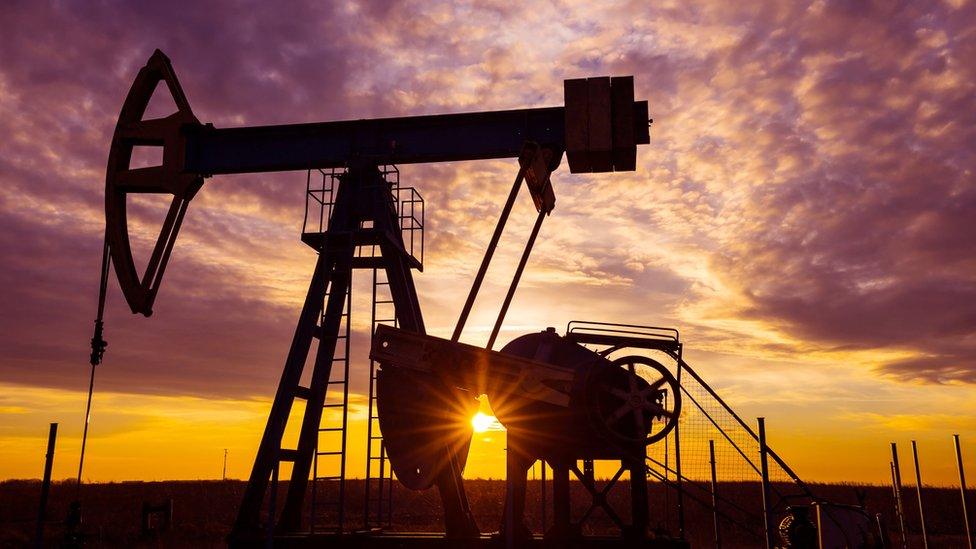
The judge sided with the government, who argued that in reality there was no ban in place as the policymaking process was still ongoing.
However, the moratorium in Scotland continues, in contrast to the pro-fracking stance of the UK government.
Environmental campaigners oppose fracking, which they say can cause pollution, quakes, and undermine efforts to tackle climate change.

The future
In February 2019, £1bn worth of investment was announced in the UK by Ineos.
This included building a £350m energy plant at Grangemouth, and £500m for overhauling the Forties pipeline.
However, owners Petroineos has now said Grangemouth has been facing significant challenges because of global market pressures.
Petroineos intends to turn the site into a fuels import terminal which would result in the loss of at least 400 jobs.
Work to transform the site is expected to take 18 months.
The firm said its new terminal would be able to import petrol, diesel, aviation fuel and kerosene into Scotland.
Trade union Unite has said it would "leave no stone unturned" in its fight to save jobs at Grangemouth.
- Published22 November 2023
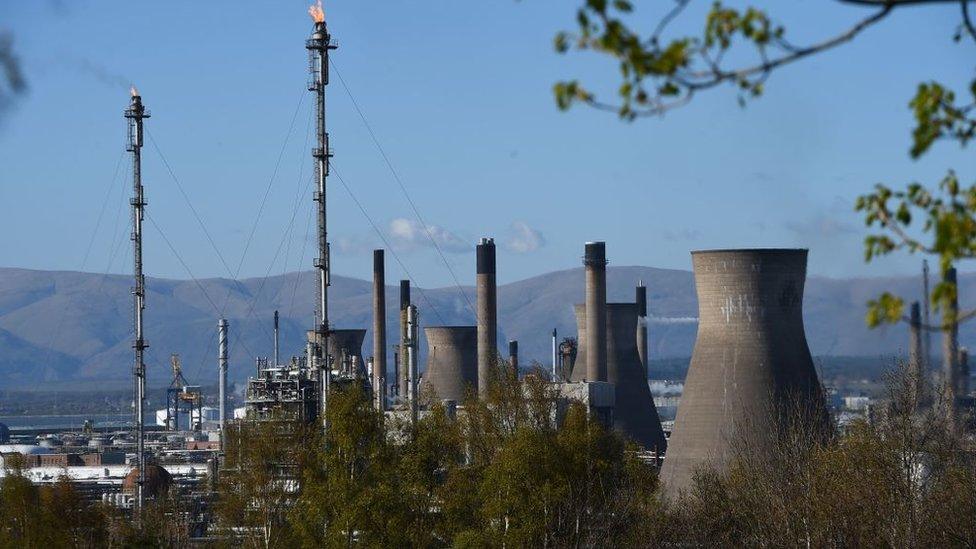
- Published27 February 2019
